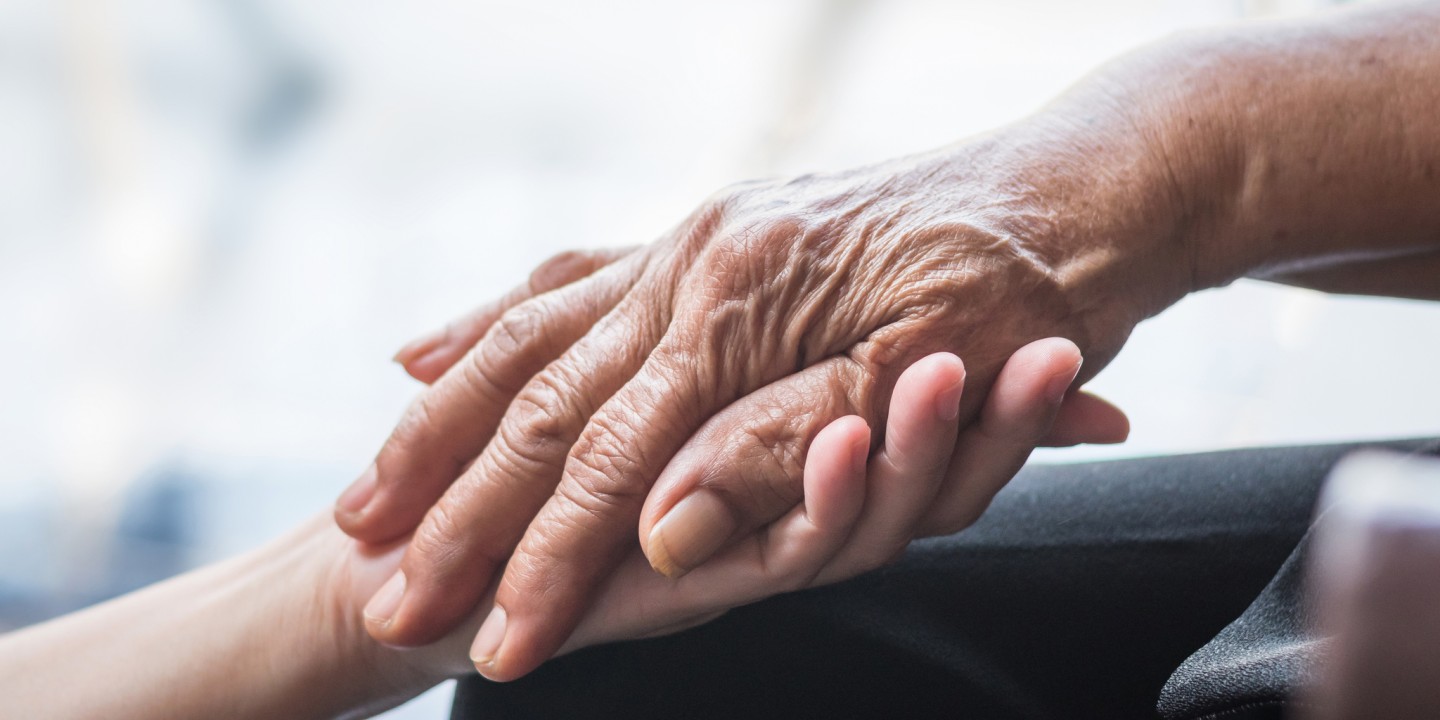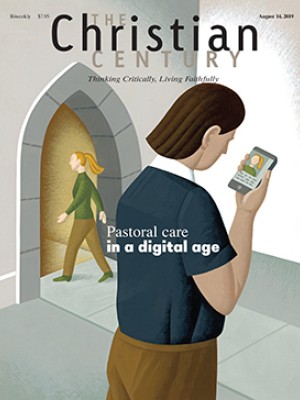Discovering sabbath in my mother’s hospice room
She was a staunch observer of sabbath. It took her death for me to appreciate why.

I had the first true sabbath of my adult life in my mother’s hospice room.
I’d tussled with her over busyness for many years. She had staunchly kept the sabbath since she was a young girl, when she learned well that the hours of the Lord’s day were holy. It was a day different from the others—sacred time for ceasing from any labor and worldly activity one might do six days of the week. Only church, acts of service, family visits, and resting were permitted.
She practiced sabbath for herself and held hallowed space for me, too. Growing up, Mom ensured whatever apartment we rented was within walking distance of a Baptist Church, such that come hell or high water, we’d be there anytime the doors were open. Church gave her life. She was so buoyed by a mother-daughter sabbath spent studying, praying, singing, fellowshiping, and napping that she could continue carrying the heavy loads of poverty and single parenthood. We spent decades keeping holy days together.
Read our latest issue or browse back issues.
On Sundays, she experienced what many of us miss: a weekly glimpse into Rabbi Abraham Joshua Heschel’s “palace in time.” Sabbath was a temporary relief from being a mortal in this material world—a chance to rest in the balm of eternal life to come.
But then I got married and ambitious. Sabbath became a point of contention, not sweetness. Gone were the days when we shared a hymnal and swayed to “What a Friend We Have in Jesus.”
I am a trivocational religious professional: writer, minister, professor. Mom chided me for trying to do too much. I saw my fervor as staying alive; she saw it as hubris. I valued the rich sabbath inheritance Mom passed along to me, but I’d neglected its value in reminding me of humility and humanity.
And so we wrestled over sabbath—and life.
“You’re trying to do too much,” she’d repeat when I skipped sabbath rest amid duties for my three part-time jobs. I’m doing what I must do to be successful, I thought.
But success looked different to her. We danced like this for the last seven years of her life. Mom slowly and steadily letting go of this life; me gripping onto it as hard and as fast as I could. A piece of us longed for what the other chose, but we never met in the middle. I coped with her withdrawal through nonstop wheel spinning; she met my attempt to exert godlike control over my life (and hers) by doubling down on her surrender.
And so I was not surprised when she declined a green-scrubbed surgeon’s plea to repair her perforated intestines in a simple yet life-saving surgery.
I had to reconcile myself to her decision, releasing my desire for her to combat her condition—to fight for what I, and the world, perceive as valuable: more time on earth. I let go. Sabbath and death are, after all, an acceptance of what’s left undone in order to lean into that which transcends. Letting go on a day of rest is to trade chaos for peace; letting go of the lives we’ve known is to trade the temporary for eternity. In both, we draw nearer to God.
This was exactly what sabbath had offered her for 77 years: to know that she was not God—and to gain a glimpse of God by seeing beyond her physical and mental pain here.
The first and only Sunday she spent in hospice care I woke up to a mystical pull. I knew it would be her last sabbath. I determined that we should “go to church,” drawing on my sabbath muscle memory gained in wooden Baptist pews.
Though I wanted to control whatever came next—the push and pull of her health or a swift, peaceful death—I knew it was time to just be present with her and God, for sabbath’s sake. We spent the day reading from her inscribed leather-bound Bible. I recited a handful of her favorite Mary Oliver poems and sang hymns off-key. My clunky homily was a list of all the lessons she’d taught me about sacred time. But it was a reading from her marked-up 1965 edition of The Prophet by Kahlil Gibran that piqued her interest. She opened her eyes and smiled when I told her I found the sticky note she left my brother and me, “On Death.”
For what is it to die but to stand naked in the wind and to melt into the sun? And what is it to cease breathing, but to free the breath from its restless tides, that it may rise and expand and seek God unencumbered?
We napped side by side until Truffy, the 16-year-old orange tabby cat, arrived for an afternoon visit. He usually protests a field trip but sat obediently on her bed, one paw on her heart, the other on her hand. She mouthed “I love you” to us, and it was the most lucid I’d seen her since two days prior, when she had lifted a finger, motioning for me to twirl so she could see the blue dress I was wearing. “Pretty,” she’d said, weak. Mothers never cease being mothers.
A deacon visited as the sun set, bringing sabbath prayers and peppermint oil lotion to anoint her, the foundation of spiritual care as taught to us by Mary Magdalene and Jesus. Sunday darkness arrived, and I had learned the secret she’d known all those years. Sabbath turns our worlds upside down, and asks: How do we gain something by doing nothing? How do we refill ourselves by emptying? I caught a glimpse of God and the beyond.
Four days after our sabbath, her body struggled with such force to prevent its own shutdown.
“Don’t hesitate,” I told her as she took her last breaths. “It’s everything you’ve been waiting for.”
A version of this article appears in the print edition under the title “My mother’s last sabbath.”






